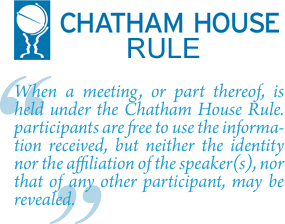Venue:
DTU Science Park Diplomvej 381, CopenhagenTime:
Session start from 09:00-16:30.The GRC-F exam is taken online (multiple choice) after the presentation at approx. 17:00
Registration at 08:30
Price:
595 Euro +VAT / DKK 4.400 +VAT(Participation for one day with GRC-F certification)
Download Brochure

The one-day training provides the participants with a broad range of areas addressed in the GRC Foundation Model. GRC Foundation Masterclass guides the participants to understand and apply GRC processes to integrate GRC processes, embed GRC principles and avoid duplication of efforts in GRC implementation, execution and monitoring.
The masterclass is based on ISO 19600 to help participants establish, develop, evaluate, and maintain a GRC compliance management system. We will further add the Compliance and risk management standards that align closely with ISO 31000 so that the entire presentation focusses on a single GRC framework to enhance the principles of good governance, accountability, proportionality, transparency and sustainability.
The Masterclass guides you to expand your GRC knowledge and get certified. In general, the following GRC issues will be addressed in the GRC-Foundation Masterclas.
- GRC Integration: Achieving Goals, Resilience, and Growth
- Critical success factors of implementing Integrated GRC: Opportunities and challenges
- The GRC definitions, the structure of the GRC Foundation Model Elements that add stakeholder value from an effective GRC program
- A roadmap to implement GRC principles: how to embed GRC in the business activities and performance
- Risk and compliance frameworks: GRC Capability Model, COSO 2013, COSO ERM 2017, ISO 31000:2019, ISO 19600:2014, PMBOK Guide
- Importance of secure governance practices: the GRC decision-making process
- The GRC impact on performance and sustainability, efficient, effective and responsive capabilities
- Integrating risk management, internal controls and compliance: the three lines of defence, assurance maps, Responsible, Accountable, Consulted, Informed (RACI) role and responsibilities
- Integrating GRC with information technology, business continuity plans, information security, data retention, access
- Convergence, integration and management of GRC policies to business process management
- Risk management actions are based on Riskability assessment IT tools for consistency and handling of quality data
- How to manage the regulatory compliance in various trades' and operations and to gain valuable benchmarking data. This session will offer a wide-ranging discussion on what that data tells us about the state of regulatory compliance in the various trades today.
- Building GRC programs, systems and processes that improve management across functions
- Enables rapid responses when problems do arise.
- Provides early notice of potential business issues
- Reduction of functional overlap
- Reinforces intangible assets like brand perception & customer, partner and vendor relations
- Tangible benefits like transparency & attesting to financial disclosures.
- Teams focus on appropriate controls - and to keep risks from becoming threats
- Creating a technology inventory and change plan with GRC tools: solutions, enabling technology components, business process managers, dashboards, training, managing findings and incidents, fraud, workflows managers
- Automating GRC structures in the organisation.
- How to create a culture of zero tolerance to non-compliance.
- how to drive a culture that embraces the company's ethics and compliance values
- How to encourage employees to embrace ethical conduct and shun non-compliant actions at large dynamic companies.
- GRC compliance moving forward: machine learning, business intelligence, blockchain, analytics
The one-day GRC Compliance training program will build on the corporate risk culture. After examination, we will provide templates for GRC execution and monitoring. This GRC toolkit can be of incredible value to build and monitor GRC compliance and build GRC awareness, develop a platform for ethical culture, and establishing acceptable standards of GRC discipline, behaviour, and finally not only how to mitigate risks but how to use GRC intelligence for performance, profits and sustainability.
After the one-day seminar, participants will be able to renew GRC processes as an essential part of organisational and the management assessment process. Based on the best available data and information, participants will be able to respond to a change in a systematic, structured and timely manner. We will consider the human and cultural factors and documentation of GRC components so that it can be measured and managed to facilitate continuous improvement and strengthening of the organisation.



